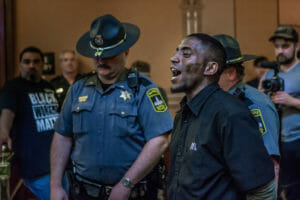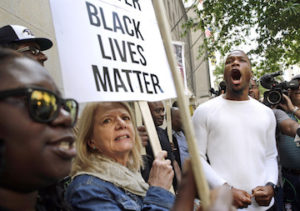Supreme Court: Obscenity Still in Eye of Beholder
The Supreme Court has decided to leave it up to individual communities to decide whether something constitutes pornography. But in the borderless Internet age, what really constitutes a community?In declining to hear a case on obscenity, the Supreme Court left it up to individual communities to decide whether something constitutes pornography. But in the borderless Internet age, what really constitutes a community?
Your support matters…Justicemag:
With just four words – “the judgment is affirmed” – the Supreme Court on Monday declined to hear Nitke v. Gonzales. Those four words may be the most important Internet purveyors of sexual content hear for quite some time.
Even in our federal system of government, the law concerning obscenity is a legal oddity. A photograph that in New York would be considered protected speech under the First Amendment could in Alabama be considered obscene, making the photographer and distributors subject to felony charges. That’s a consequence of the Supreme Court’s landmark 1973 case, Miller v. California, in which the court ruled that obscenity was essentially a subjective judgment, and called for prosecutors, judges and juries to apply “community standards” in determining what speech was obscene and what was protected. In the age of the Internet, a new issue has been raised – if something considered free speech in New York is accessible in Alabama, where it’s considered obscene, what standard should be used? By rejecting the case, the Supreme Court has left that question open.
Independent journalism is under threat and overshadowed by heavily funded mainstream media.
You can help level the playing field. Become a member.
Your tax-deductible contribution keeps us digging beneath the headlines to give you thought-provoking, investigative reporting and analysis that unearths what's really happening- without compromise.
Give today to support our courageous, independent journalists.





You need to be a supporter to comment.
There are currently no responses to this article.
Be the first to respond.